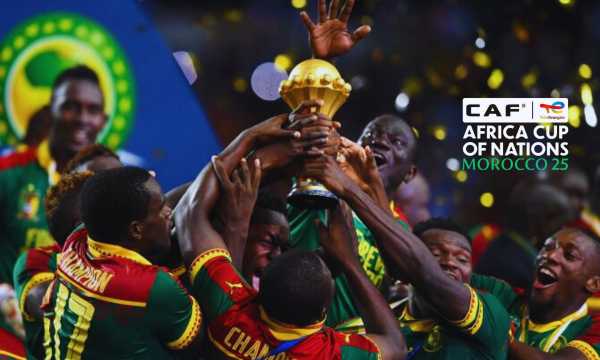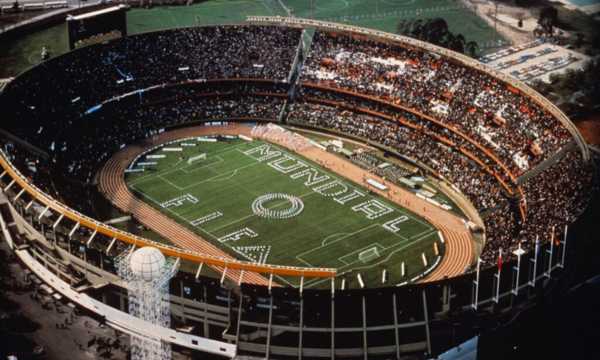The Champions League turns ordinary nights into epic moments, bringing together the best European clubs in clashes that go down in world football history.
Ad
When that famous anthem echoes through the stadiums, something magical happens. The greatest stars on the planet face off in this competition that represents the pinnacle of club football.
From historic comebacks to unforgettable goals, the Champions League is where legends are forged and moments are eternalized.
Have you ever wondered how it all began? How does the current format work? Which records seem unbeatable?
In this article, we will explore all aspects of this competition that makes every football fan’s heart beat faster.
How Does the Champions League Work?
The Champions League has a constantly evolving format but maintains its essence of bringing together the elite of European football.
Currently, the competition features 36 clubs in a single league phase, replacing the traditional group format.
Each team faces eight different opponents, with four home games and four away games, all determined by a draw based on seeding pots.
The top eight teams in the overall standings advance directly to the Round of 16.
The teams that finish between 9th and 24th place compete in home-and-away playoffs to determine the other qualifiers.
From the Round of 16 onwards, the Champions League follows knockout stages until the grand final, played in a single match at a neutral venue.
The scoring system follows the standard: three points for a win, one for a draw, and none for a loss.
This expanded format ensures more matches between major clubs and increases the number of spots for lower-ranked leagues.
When Does the Champions League Take Place?
The Champions League calendar follows the European football season, generally starting in September and culminating with the grand final in May or June of the following year.
The preliminary rounds, which determine the final qualifiers, begin in July with clubs from smaller leagues.
The main phase of the competition traditionally takes place on Tuesdays and Wednesdays, turning these days into true celebrations of European football.
The championship divides its schedule into well-defined stages throughout the season. The league phase occupies the calendar from September to January, with games approximately every three weeks.
The playoffs and Round of 16 take place between February and March, intensifying the excitement with knockout matches.
Between April and May, the quarter-finals and semi-finals occur, always in a home-and-away format.
The Champions League grand final is traditionally played on a Saturday, allowing fans worldwide to watch the event that concludes the European club season.
Clubs with the Most Champions League Titles
Real Madrid reigns supreme in the Champions League pantheon with an impressive 15 titles, consolidating their position as the most successful club in history.
The Spanish giant has built dynasties in different eras, from Di Stéfano in the 1950s to Cristiano Ronaldo in the 2010s.
Italian club Milan holds the second position with seven titles, although their last win was in 2007. Bayern Munich and Liverpool share the third spot in the ranking, each with six trophies in their cabinet.
Barcelona completes the top five with five titles, all won in the modern era of the competition.
Ajax and Manchester United follow closely, with four titles each, although the Dutch club has not won since 1995.
Top Champions:
- Real Madrid: 15 titles (1956, 1957, 1958, 1959, 1960, 1966, 1998, 2000, 2002, 2014, 2016, 2017, 2018, 2022, 2024)
- Milan: 7 titles (1963, 1969, 1989, 1990, 1994, 2003, 2007)
- Bayern Munich: 6 titles (1974, 1975, 1976, 2001, 2013, 2020)
- Liverpool: 6 titles (1977, 1978, 1981, 1984, 2005, 2019)
- Barcelona: 5 titles (1992, 2006, 2009, 2011, 2015)
Leagues That Play and How They Can Qualify
In the Champions League, it is not national teams but clubs that represent their countries based on their performance in domestic leagues.
The qualification system directly depends on each league’s position in the UEFA coefficient rankings.
The strongest leagues, such as England, Spain, Germany, and Italy, have more direct spots in the competition.
The allocation of spots for the Champions is periodically reviewed by UEFA, but currently, the top European leagues can send up to five representatives.
Countries with lower-ranked leagues generally have one or two spots, often needing to compete in preliminary rounds.
The previous year’s Champions League and Europa League winners automatically qualify for the next edition.
This qualification structure ensures continental representation but tends to favor clubs from countries with more competitive leagues.
The Top Scorers in Champions League History
Cristiano Ronaldo tops the all-time scoring charts of the Champions League with an impressive 140 goals in 183 matches.
The Portuguese star built his legend mainly with the jerseys of Real Madrid and Manchester United.
Lionel Messi follows closely with 129 goals, establishing one of the greatest individual rivalries the competition has ever seen.
The gap between these two phenomena and the rest of the scorers is remarkable.
Robert Lewandowski holds the third spot with 93 goals, followed by Karim Benzema (90) and Raúl González (71).
Among active players, names like Thomas Müller, Kylian Mbappé, and Erling Haaland continue to climb this prestigious list. Top historical scorers until 2025:
- Cristiano Ronaldo: 140 goals
- Lionel Messi: 129 goals
- Robert Lewandowski: 93 goals
- Karim Benzema: 90 goals
- Raúl González: 71 goals
- Ruud van Nistelrooy: 56 goals
- Thomas Müller: 55 goals
- Thierry Henry: 50 goals
- Alfredo Di Stéfano: 49 goals
- Andriy Shevchenko: 48 goals
The Champions League frequently sees new goal-scoring talents emerge, with Erling Haaland establishing the best goals-per-game average in the competition’s history (more than one goal per game).
Incredible Records of the European Championship
The Champions League accumulates fascinating records throughout its history.
Real Madrid holds the longest streak of consecutive titles, winning the first five editions between 1956 and 1960. This extraordinary feat remains unmatched in European football.
Francisco Gento, a legend of the Spanish club, is the only player with six trophies in the competition as an athlete.
In the modern era, we have impressive milestones such as the largest win in the competition: Liverpool 8-0 Besiktas in 2007.
Cristiano Ronaldo not only leads the scoring charts but also holds the record for most goals in a single season: 17 goals in 2013/14.
Bayern Munich set the longest unbeaten run, with 30 matches without defeat between 2019 and 2021.
Notable Records:
- Most participations: Real Madrid (54)
- Most matches as a coach: Carlo Ancelotti (187)
- Most titles as a coach: Carlo Ancelotti (4)
- Fastest goal: Roy Makaay (10.12 seconds)
- Youngest player to score: Ansu Fati (17 years and 40 days)
- Most assists: Cristiano Ronaldo (42)
- Most hat-tricks: Lionel Messi and Cristiano Ronaldo (8 each)
The Champions League continues to set new standards of excellence in world football, with its records constantly being challenged each season.
The Anthem, the Trophy, and the Mystique of the Competition
The Champions League anthem, composed by Tony Britten in 1992, has become one of the most recognizable symbols in world sports.
Inspired by Handel’s “Zadok the Priest,” the anthem sung in three languages (English, French, and German) creates a unique atmosphere before each match.
Few moments in football give chills like hearing this melody while the teams line up on the pitch. The trophy, affectionately nicknamed “Big Ears,” weighs an impressive 7.5 kg and stands 73.5 cm tall.
Unlike other competitions, the original trophy is handed to the champion, who then receives a replica to keep permanently.
Only clubs with five titles or three consecutive wins can keep the original version permanently.
Elements that Build the Mystique:
- Exclusive star ball for the matches
- Standardized opening ceremony
- Ritual of teams entering side by side
- Special patches on the participants’ uniforms
- Characteristic stadium lighting system
- Standardized television broadcast with its own visual identity
What to Expect from the Champions League 2025
The Champions League 2025 promises to be revolutionary with the consolidation of the new 36-team format and the single league phase.
The major European clubs continue to strengthen to compete for the continent’s most coveted title.
The competition between traditional powers and new financial protagonists like PSG and Premier League clubs increases competitiveness.
Established stars like Mbappé, Haaland, and Vinícius Júnior should headline great moments in the championship.
Emerging young talents like Lamine Yamal, Jamal Musiala, and Endrick will also have their spotlight in the biggest showcase of European football.
The technical balance between the top European leagues suggests an extremely contested competition.
The Champions League continues to reinvent itself while maintaining its traditions, solidifying its position as the most prestigious and valuable club competition on the planet.
Final Considerations
The Champions League transcends the simple status of a football tournament to establish itself as a global cultural phenomenon.
Since its founding as the European Champions Cup in 1955 to the current format, the competition continues to be the stage where the greatest talents on the planet write their names in history.
Every season, we are gifted with unforgettable moments: impossible comebacks, legendary goals, and stories of overcoming.
The tournament perfectly balances tradition and innovation, maintaining its essence while adapting to modern football changes.
In the coming years, the Champions will continue to evolve but always preserve what makes it special: the pursuit of the ultimate excellence in European football.


